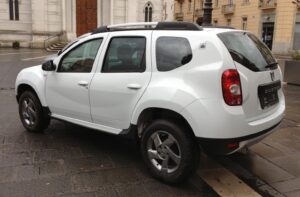
Owning a vehicle can provide convenience and freedom, but it also comes with a significant financial commitment. From fuel and maintenance to insurance and depreciation, the costs of keeping a car on the road can quickly add up. However, with some strategic planning and a few smart choices, you can reduce your vehicle running costs and keep more money in your pocket. In this article, we will explore some practical tips to help you save money while still enjoying the benefits of having a car.
- Choose a Fuel-Efficient Vehicle
One of the most significant ongoing expenses for vehicle owners is fuel. To reduce this cost, consider investing in a fuel-efficient vehicle. When shopping for a new or used car, pay attention to the vehicle’s miles per gallon (MPG) rating. Smaller and hybrid cars tend to be more fuel-efficient, saving you money every time you fill up your tank.
- Maintain Your Vehicle Regularly
Regular maintenance is crucial to keep your vehicle running smoothly and avoid costly repairs down the road. Follow the manufacturer’s recommended maintenance schedule, which typically includes oil changes, tire rotations, brake inspections, and more. A well-maintained vehicle is not only safer but also more fuel-efficient.
- Drive Smarter
Your driving habits can significantly impact your vehicle’s fuel efficiency. To reduce fuel costs:
- Avoid aggressive driving, such as rapid acceleration and hard braking.
- Use cruise control on the highway to maintain a steady speed.
- Reduce idling time, as idling burns fuel without moving your vehicle.
- Combine errands to minimize the number of trips you make.
- Shop Around for Insurance
Auto insurance is another significant cost associated with owning a vehicle. Don’t settle for the first insurance quote you receive. Shop around and compare rates from different insurance providers. You might find that you can get the same coverage at a lower price by switching insurers or negotiating with your current provider.
- Consider Carpooling or Using Public Transportation
If you live in an area with good public transportation or have the opportunity to carpool with others, consider using these alternatives to driving alone. Carpooling not only reduces your fuel costs but also helps decrease wear and tear on your vehicle. Public transportation can be an even more cost-effective option, as you don’t have to worry about fuel, maintenance, or parking expenses.

- Drive Less
Reducing the number of miles you drive is one of the most effective ways to cut vehicle running costs. If possible, try telecommuting for work, walking, biking, or using rideshare services for shorter trips. You can also plan your routes efficiently to minimize unnecessary driving.
- Optimize Your Insurance Coverage
Review your insurance policy to ensure you have the right amount of coverage for your needs. If you have an older vehicle, you may be able to reduce your coverage to save on premiums. However, make sure you have enough coverage to protect yourself financially in case of an accident.
- Avoid Premium Fuel
Many vehicles are designed to run perfectly fine on regular unleaded gasoline. Using premium fuel when your car doesn’t require it is an unnecessary expense. Check your vehicle’s owner’s manual to determine the recommended fuel type, and stick to it.
- Reduce Weight and Drag
Carrying unnecessary weight in your vehicle can decrease its fuel efficiency. Remove items from your trunk and roof that you don’t need for your trip. Roof racks and carriers can also increase drag and reduce fuel efficiency, so remove them when not in use.
- Plan for Depreciation
While it may not be an immediate cost, vehicle depreciation is a significant factor in your overall vehicle expenses. Choose a vehicle with a good resale value, and take care of it to maintain its value over time. You can also consider leasing instead of buying if you prefer to have a newer vehicle every few years without worrying about depreciation.
In conclusion, reducing vehicle running costs requires a combination of smart choices and proactive maintenance. By selecting a fuel-efficient vehicle, driving sensibly, maintaining your car regularly, and exploring cost-effective alternatives, you can enjoy the freedom of owning a car without breaking the bank. Remember that small changes in your habits and choices can lead to significant savings over time, allowing you to allocate your hard-earned money to other important aspects of your life.


